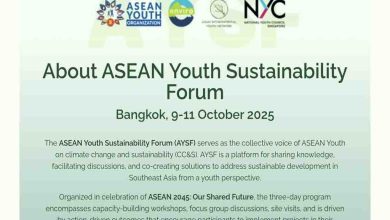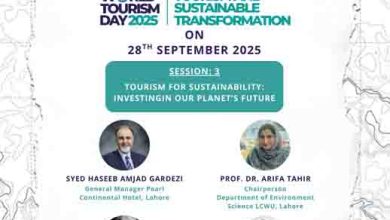Climate crisis: A growing burden on women’s lives in Pakistan and globally
In Pakistan and globally, women face unique challenges and vulnerabilities, including increased workload, food insecurity, health impacts, and economic empowerment limitations.
The climate crisis is a pressing issue that disproportionately affects women’s lives, particularly in vulnerable communities. In Pakistan and globally, women are shouldering the burden of climate change, facing unique challenges and vulnerabilities.
In Pakistan, women are already marginalised and face significant social and economic barriers. The climate crisis exacerbates these issues, particularly in rural areas where women are responsible for collecting water and fuel, managing households, and caring for children. Droughts, heatwaves, and floods have become more frequent and intense, making these tasks even more challenging.
“The 2022 floods in Pakistan brought unprecedented destruction, with a staggering 2,000 health facilities reduced to rubble, severely crippling reproductive health services. The disaster affected a whopping 33 million people, including 8.2 million women of reproductive age, who were left vulnerable to health risks. Moreover, a staggering 650,000 pregnant women in flood-affected areas were forced to navigate the treacherous landscape without access to proper medical care (UN Population Fund, August 2022).
Rural women bore the brunt of the disaster with:
- Over 64 million females reside in rural areas, accounting for nearly half of the rural population.
- A staggering 62% of women toil in fields, yet only 19% receive paid employment.
- A whopping 60% are working as unpaid labourers on family farms and enterprises, perpetuating the cycle of poverty and inequality.”
Globally, women are more vulnerable to the impacts of climate change due to their social, economic, and political status. They are more likely to live in poverty, have limited access to resources and information, and face discrimination and marginalization. Climate-related disasters and changes in weather patterns affect women’s livelihoods, health, and well-being, perpetuating cycles of poverty and inequality.
The climate crisis is burdening women with:
Increased workload: Women are responsible for collecting water and fuel, which becomes more challenging due to droughts and deforestation.
Food insecurity: Women are often responsible for food preparation and provision, which is threatened by reduced crop yields and changed growing seasons.
Health impacts: Women are more vulnerable to heat stress, respiratory problems, and other health issues due to warmer temperatures.
Economic empowerment: Women’s economic opportunities are limited by climate-related shocks to agriculture and natural resources.
Migration and displacement: Women are often forced to migrate or are displaced due to climate-related disasters, leading to loss of livelihoods and social networks.
Violence and exploitation: Women and girls are more vulnerable to violence and exploitation in the context of climate-related displacement and migration.
To address the climate crisis and its impact on women’s lives, we must adopt a gender-sensitive approach. This includes recognising and addressing the unique vulnerabilities and challenges faced by women, promoting women’s participation and leadership in climate decision-making, and supporting climate-resilient agriculture and natural resource management practices.







